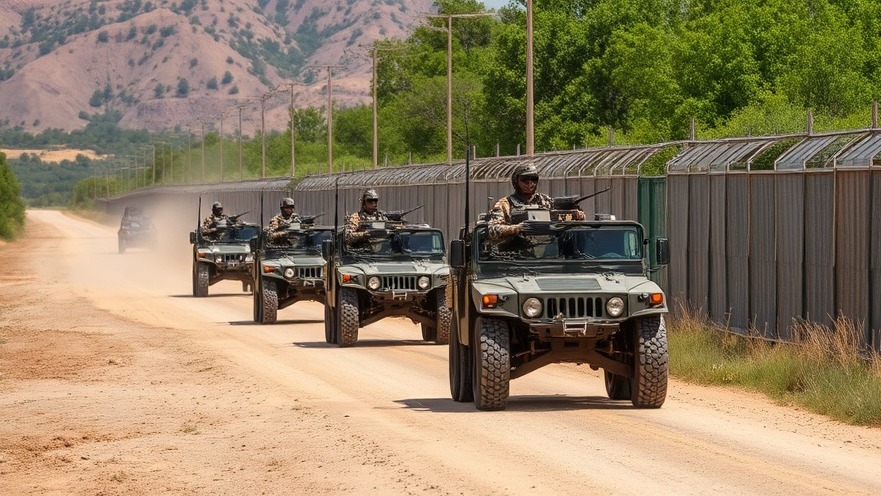
Military Zones and Immigration Policy: A New Era in Texas
The recent declaration of a military zone around El Paso, Texas, raises critical questions about the intersection of military power and immigration policy. On May 2, the Pentagon announced its decision to establish a second military zone along the U.S.-Mexico border, aimed at enhancing the capabilities of U.S. soldiers to patrol the area and arrest migrants. This move, part of the Trump administration’s broader strategy to bolster border security, contradicts the apparent decrease in migrant crossings, revealing a complex narrative surrounding national security and immigration enforcement.
Understanding the Role of Military in Immigration Enforcement
As General Gregory Guillot, commander of U.S. Northern Command, stated, the creation of this National Defense Area is meant to increase operational effectiveness in curbing illegal activities along the southern border. This approach, however, raises significant concerns about the militarization of border security. Under the Posse Comitatus Act, the military is generally prohibited from engaging in civilian law enforcement. Yet, the administration finds a loophole through the military purpose doctrine, allowing for these operations without explicit congressional approval.
Historical Context: Military Presence at the Border
The establishment of military zones at the border is not entirely new. It follows a recent precedent set with a similar military zone in New Mexico. This pattern suggests a growing trend where military forces are increasingly deployed to handle immigration enforcement—even as reports indicate significant drops in illegal crossings. For instance, a reported 1,627 migrants were encountered in the El Paso sector recently, marking an 87% decrease since last August. Yet the military presence sends a message of an ongoing crisis, contradicting the data.
Perception vs. Reality: Border Crossings and Militarization
Critics argue that using military personnel for immigration enforcement inflates the rhetoric of an 'invasion.' This perception is particularly potent in political discourse, even if data reflects a decrease in border crossings. Aimeé Santillán, a policy analyst at the Hope Border Institute, emphasized the dangers of such militarization, pointing out that it not only criminalizes migrants seeking asylum but also jeopardizes humanitarian efforts. The rising number of migrant deaths in the El Paso sector, with 176 fatalities recorded in 2024—up from just one in 2014—illustrates the potential consequences of this approach.
The Human Impact: A Closer Look at Migrant Experiences
With military personnel patrolling the border, the implications for migrants seeking safety are dire. This escalation could deter individuals from approaching the border for legitimate reasons, forcing desperate families into more perilous conditions. As border deaths climb, supporting organizations face heightened challenges in providing aid. The government's policy appears to prioritize security over humanitarian values, igniting a debate on ethical considerations in immigration.
Legal and Community Responses to Military Intervention
The community's response to this militarized approach has been multifaceted. Advocacy groups argue for the protection of migrants’ rights and emphasize the need for more humane immigration policies. They contend that the military’s role should be limited to national defense, not the enforcement of immigration laws. Some community members express concern that this escalates existing tensions between local residents and migrants, including fears around the use of force and violations of civil rights.
Future Trends in Immigration Enforcement
Looking ahead, it is likely that military involvement at the border will continue to ignite heated debates about immigration policy. The current trajectory suggests that, rather than seeking legislative solutions or comprehensive immigration reform, the administration may lean on military solutions, perpetuating cycles of enforcement rather than addressing underlying issues. As the landscape evolves, community stakeholders will need to adapt and respond through advocacy and engagement.
It is essential for those interested in Texas news to remain aware of the evolving situation at the border and to consider the broader implications this military presence has on migrants and local communities.
 Add Element
Add Element  Add Row
Add Row 



Write A Comment